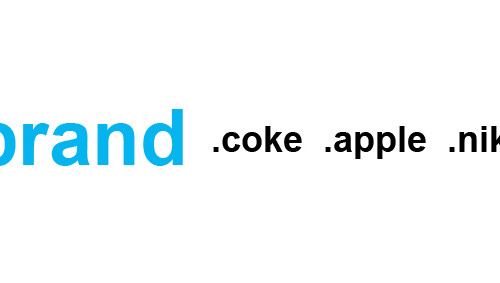Earlier this year, the Internet Corporation for Assigned Names and Numbers (ICANN) allowed companies, cities, brands and others to apply for their own top-level domains (TLD). For example, Nike has applied for “.NIKE” and Heinz has applied “.HEINZ” for use alongside existing TLDs like .COM and .INFO.
This represents a major step in bringing choice, competition and innovation to the Internet. There were almost 2,000 applications received in a matter of weeks, representing a potentially radical shake-up of the Internet. Given that overwhelming response, it’s not surprising that ICANN had to extend the public comment period for these new domains. And now that the application period is closed, a number of concerns have been voiced against some of the proposed TLDs.
As you might expect, applications for domains such as .ISLAM or .CATHOLIC were met with almost immediate opposition. However, opposition has also been expressed toward new TLD applications for generic terms such as .BOOKS or .BEER. The basis of these objections? They are generic terms, and they should not be monopolised by companies who are able to pay for their use as TLDs.
Despite the current media stir, ownership of generic terms is an issue that the domain and trademark industries have previously confronted and resolved.
Some arguments have been made on the basis that no one should be granted the trademarked use of generic words because they are “publically owned.” For example, some say that an application from L’Oreal for .BEAUTY should be rejected since “beauty” is a generic term. However, a cursory examination of trademark databases shows that “beauty” — despite its generic nature — has been a registered trademark in the USA since 1996. Even though it’s a common term, “beauty” has had neither public limits on its use nor any other negative repercussions. And BEAUTY.COM has been registered since 1997.
Market giants and generic terms
Other critics say that ICANN will accentuate the already-dominant market shares of corporate giants like Amazon and Microsoft if it approves their applications for domains like .BOOKS or .DOCS. Such concerns rest on the premise that these companies have somehow unfairly created monopolies and, therefore, they should be punished by denying them eligibility to operate TLDs. Fortunately, ICANN must treat all applications equally — as long as they meet ICANN’s strict eligibility requirements. As to the monopoly claim, we’re unaware of anyone who has been forced to buy either an Amazon or Microsoft product. Their large market shares appear to be due to superior products and services and can easily be lost if another company comes along with something superior.
Privatisation, personalisation and protections
There have also been inaccurate claims that once a business owns the rights to a TLD, they can write their own terms and conditions relating to their domain. And that, in turn, could lead to a privatisation of the Web. However, anyone with such concerns should read the ICANN processes for making changes in domain policy, along with the protections that will prevent this from happening.
Some have even objected to the whole idea of new domains, contending that the current TLDs are plenty. They are missing one crucial point: at present, there are only a handful of non-Roman character TLDs on the Internet. Soon, the vast majority of Internet users will be ones whose written language is not in ASCII characters. This latest TLD round addresses this issue and will make non-ASCII script languages like Arabic and Chinese available for use in top-level domains. This change will help make the Internet accessible to far more people than it reaches today.
Also, the new TLDs offer business and consumer benefits in terms of increased security and reduced counterfeiting and fraud, issues that continue to plague the Internet. With a new .SWATCH TLD as an example, consumers can have confidence they are buying a genuine Swatch watch, if they are at a .SWATCH branded site. Further, branded domains let companies more easily create personalised promotions or shopping pages for their online audience. Additionally, the introduction of new TLDs will give consumers more choice — and confidence — when on the Web.
While it’s easy to get distracted by debates concerning particular domains, we should not lose sight of the bigger picture. The reality is that we will be seeing hundreds of new branded and generic TLDs in the years ahead. Today, what businesses should be thinking about is how these new options can help them to connect more effectively with their customers in this changing Internet landscape.






